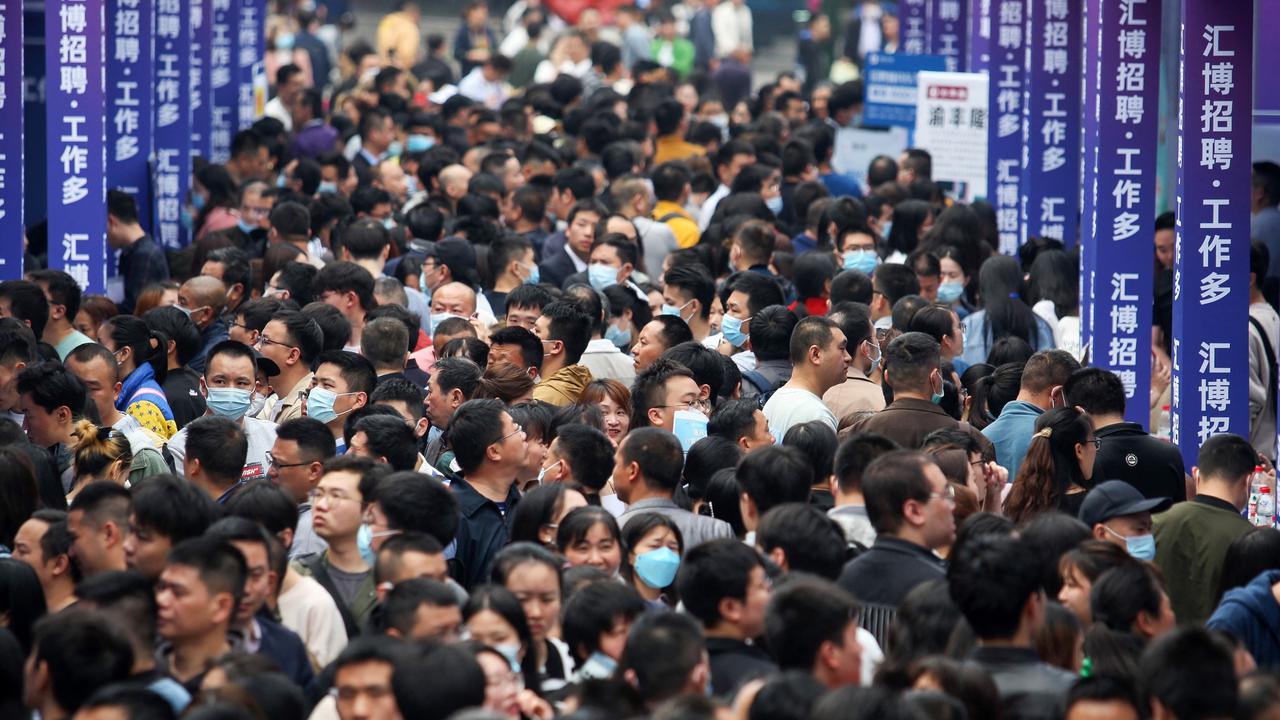[ad_1] China has revealed it will now withhold data on its rising youth unemployment rate, after releasing disappointing figures on Tuesday that sto
[ad_1]
China has revealed it will now withhold data on its rising youth unemployment rate, after releasing disappointing figures on Tuesday that stoked concerns over the state of the world’s second largest economy.
Shortly before the latest uninspiring indicators were published, the central bank cut a key interest rate in an effort to boost flagging growth.
Tuesday’s data added to a slew of disappointing figures in recent months reflecting a slump in China’s post-Covid rebound, with joblessness among 16- to 24-year-olds hitting a record 21.3 per cent in June.
The country slipped into deflation for the first time in more than two years in July, due to waning consumption and flagging exports.
The National Bureau of Statistics (NBS) on Tuesday said it would no longer release age-group-specific unemployment data starting this month, citing the need to “further improve and optimise labour force survey statistics”.
“Starting from this August, the release of urban unemployment rates for youth and other age groups across the country will be suspended,” bureau spokesman Fu Linghui said at a press conference.
Overall, unemployment rose to 5.3 per cent in July compared with 5.2 per cent in June, the NBS said.
As indicators of an economic slowdown have piled up, many experts have called for a large-scale recovery plan to boost activity.
But for the time being, authorities are sticking to targeted measures and declarations of support for the private sector — with little in the way of tangible steps.
Imports fell by 12.4 per cent in July, declining sharply each month from the same period in 2022.
The nation’s youth unemployment rate was tipped to hit a staggering 46.5 per cent this year, with young people forced to become “full-time kids”.
Authorities said the nation was facing “new difficulties and challenges” as its post-Covid recovery fizzles out and among the dismal figures released — there was one statistic that jumped out.
Youth unemployment jumped to a record 21.3 per cent in June, up from 20.8 per cent in May — and the problem may be much bigger than official data suggests.
It comes as the nation’s property sector remains in turmoil, with major developers failing to complete housing projects, triggering protests and mortgage boycotts from homebuyers.
The crisis has begun to send economic shockwaves around the world — including in Australia where the dollar has been hit even further and the share market has dropped.
Just yesterday, shares in Chinese property giant Country Garden plunged after it missed bond payments and warned of multibillion-dollar losses, deepening concerns over the nation’s heavily indebted real estate sector.
While the People’s Bank of China recently cut interest rates and authorities pledged to help the troubled property sector, there has been very little concrete action out of Beijing.
“The key to watch from the meeting is not specific policy measures, but the policy tone set by top leaders,” Macquarie economist Larry Hu wrote in a note.
Analysts have criticised Beijing for letting the property problem mount into the behemoth it is today.
“Beijing has already done some things to ease the tensions in the property sector, but it has been too slow and too little, in our view,” Ting Lu, chief China economist at Nomura, said via CNBC.
“We believe that at some point in time Beijing will be compelled to take more measures to stem the downward spiral.”
“The government mentioned ‘strengthening countercyclical policies’ but the tone related to fiscal and monetary policies seems not significantly different from before,” said Zhiwei Zhang, chief economist at Pinpoint Asset Management.
Zhang said the call to support the property sector appeared to show that the government has “recognised the importance of policy change in this sector to stabilise the economy”.
“We don’t expect policymakers to unleash a bazooka-like stimulus package,” Hu of Macquarie said. “More likely, they would continue to roll out stimulus measures in a piecemeal way.”
[ad_2]
Source link



COMMENTS